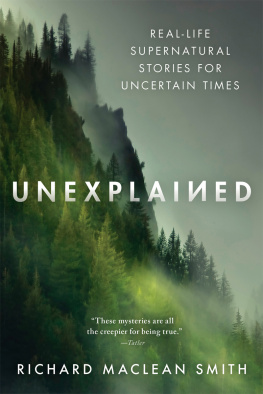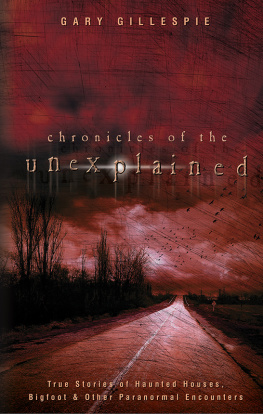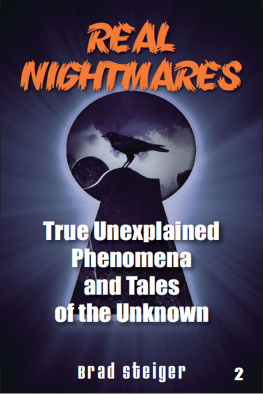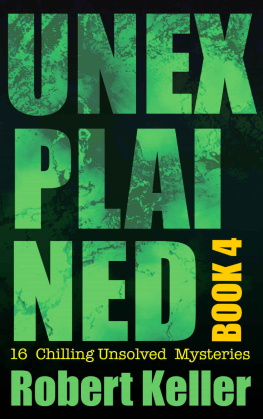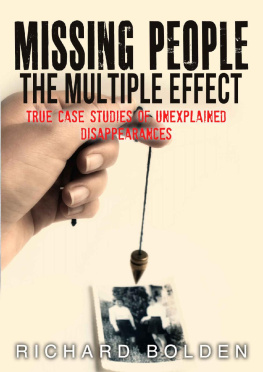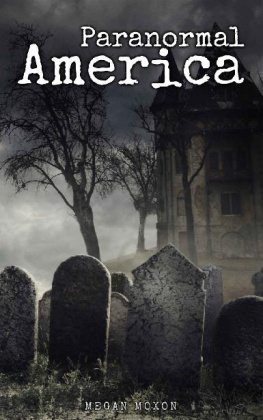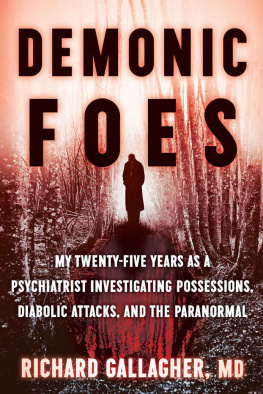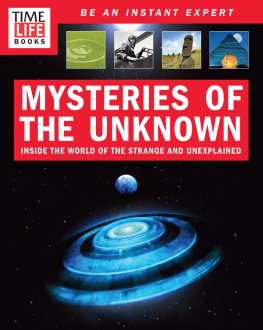For Donna, Boo, and Scout.
Copyright 2019 by Richard MacLean Smith
Cover and internal design 2019 by Sourcebooks
Cover design by Heather Morris/Sourcebooks
Cover image Bill Hinton Photography/Getty Images
Internal design by Jillian Rahn/Sourcebooks
Sourcebooks and the colophon are registered trademarks of Sourcebooks.
All rights reserved. No part of this book may be reproduced in any form or by any electronic or mechanical means including information storage and retrieval systemsexcept in the case of brief quotations embodied in critical articles or reviewswithout permission in writing from its publisher, Sourcebooks.
This publication is designed to provide accurate and authoritative information in regard to the subject matter covered. It is sold with the understanding that the publisher is not engaged in rendering legal, accounting, or other professional service. If legal advice or other expert assistance is required, the services of a competent professional person should be sought. From a Declaration of Principles Jointly Adopted by a Committee of the American Bar Association and a Committee of Publishers and Associations
The vignettes in this book are both composite and actual stories of individuals and couples. In some cases, names have been changed for purposes of anonymity.
All brand names and product names used in this book are trademarks, registered trademarks, or trade names of their respective holders. Sourcebooks is not associated with any product or vendor in this book.
Published by Sourcebooks
P.O. Box 4410, Naperville, Illinois 60567-4410
(630) 961-3900
sourcebooks.com
Originally published as Unexplained in 2018 in Great Britain by Scepter, an imprint of Hodder & Stoughton.
Library of Congress Cataloging-in-Publication data is on file with the publisher.
CONTENTS
INTRODUCTION
Its the evening of December 4, 1944, and at roughly thirty thousand feet above the border of Holland and Germany, twelve RAF Mosquito aircraft are leading a raid on the industrial harbor town of Karlsruhe. A short distance behind them, somewhere in the clouds below, more than five hundred RAF bombers are heading in the same direction. The Mosquitos form part of a unit known as the Pathfinders, whose job it is to fly at the head of a raid in order to mark the targets for a more effective run.
They do this by dropping a variety of multicolored flares: small pockets of light that float down onto the target below. One can only imagine the sight from the ground, watching as these soft-falling, colorful fireworks materialize out of the dark as if from nowhere, a weirdly beautiful precursor to the horror that would shortly follow.
On this night, inside the cockpit of Mosquito O Oboe, Captain Johnny Liddle holds the plane steady as he stares straight ahead into the night sky, while his navigator, Albert Smith, diligently plots a steady line toward their target under the dim green glow of the instrument panel.
For many of us, it is impossible to imagine the heightened sense of fear and anxiety that Johnny and Albert would have felt as they drew nearer to their target destination, a familiar feeling for them both, especially Albert, who was undertaking his ninetieth mission of the war. But even for a crew as battle-hardened as they were, one suspects it is something they never got used to.
Alter course to one-six-four degrees, Albert says through his oxygen mask.
Okay, comes back the nasal reply.
Suddenly, there is a jolt.
Albert turns sharply to the left. Looking out the window, he sees something in the darkness, something that shouldnt be there: the black underbelly of another Mosquito aircraft. He can only watch in horror as the other plane ploughs right through their tail. There is a strange moment of calm as the drone of the engine continues, and the plane seems to hold, but then comes a sickening, shuddering lurch as the aircraft starts to turn in on itself.
And now they are plummeting helplessly toward the ground.
Albert screams as he is thrown forward, wrenched into the air, and thumped to the floor of the plane. He grabs for the struts at the base of Johnnys seat as his legs twist above him and urine flows uncontrollably. Struggling to lift his head against the force of gravity, Albert can just make out Johnny wrestling with the joystick. But without the tail of the plane, it is utterly futile, and the aircraft starts to spin violently out of control.
Johnny reaches up for the handle of the escape hatch and pulls down hard. In an instant, the warmth of the cockpit is replaced by the rush of bitterly cold air. With the parachute already on his back, Johnny grabs hold of the joystick and unlocks his seat belt. Immediately, he is sucked toward the opening above. As he struggles to keep himself inside the plane, he tries desperately to reach out to Albert. For a moment, he seems to hang in the air like a balloon being held by a child just before they let it go. And then he is gone, into the darkness beyond.
Albert, now alone, with his legs still twisting above him, spots his parachute at the back of the cockpit, strapped to the side. But if he lets go and attempts to reach it, hell be sucked straight out of the plane. In that moment, in the chaotic vortex of the spinning aircraft, Albert realizes he is going to die. As the plane continues to fall, he pulls his head hard against the floor and closes his eyes. It will be quicker this way, he thinks, and the thought of being sucked out into the darkness beyond terrifies him even more.
Then something flickers across his eyelids. He opens them to find a soft orange glow all around the cockpit.
The engine is now on fire.
Please God, let it come before I burn, he begs. But then, as suddenly as it had begun, his legs fall to the floor. It takes him a second to understand, but as Albert lifts his head, he realizes the plane is no longer spinning. Whats more, hes been thrown right next to his parachute. In seconds, he rips the chute from the side and, despite his trembling fingers, clips it to his harness before somehow managing to stand.
Above, he sees only the darkness, the stuff of nightmares just a moment before but now his only hope. He reaches for it, but something pulls him back into the plane. This cant be happening. Then he realizes: its his helmet, still connected to the intercom cable. He rips it off and hauls himself up, pushing his head above the cockpit. But as the freezing wind lashes at his face and he tries to kick off, his feet refuse to leave the floor. Finally, with one last desperate push, he is thrust into the air. And now he is falling, falling alone in the pitch-black sky.
On the ground, Pilot Johnny Liddle, after successfully bailing out of the aircraft, watches as the burning plane hits the deck. There is no sign of his navigator Albert in the sky above.
+
Two days later, at the home of Alberts parents, Albert Sr. and Alice Smith, there is a dreaded knock at the door. Its the mailman, bearing news that no parent wants to hear. As Albert Sr. reads the telegram out loud, Alice struggles to contain herself. Although it isnt definitive, such telegrams rarely turn out well. The couple try to maintain hope, but its hard to escape the creeping sense that their son would never be coming home. So its with some surprise when they receive another telegram only a few days later. But this time, it isnt from the war office; its from their son. He is alive and recuperating well in the hospital. A few weeks later, he finally returns home.

